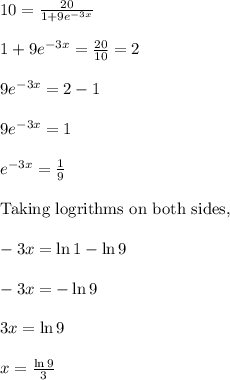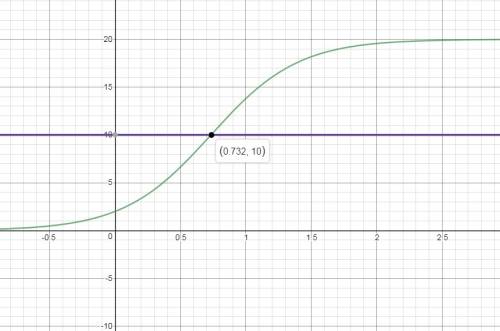
Mathematics, 22.06.2019 21:00 ellycleland16
Let f(x)=201+9e−3x . over what interval is the growth rate of the function decreasing? (ln3/9, ∞) (−∞, ln 3/9) (ln9/3, ∞) (−∞, ln 9/3)

Answers: 1


Another question on Mathematics


Mathematics, 21.06.2019 21:10
Plot a point at the y-intercept of the following function on the provided graph. 3y=-5x+7 20 points
Answers: 1

Mathematics, 22.06.2019 00:20
Jubal wrote the four equations below. he examined them, without solving them, to determine which equation has no solution. which of jubal’s equations has no solution hurry
Answers: 1

Mathematics, 22.06.2019 00:30
Will mark brainliest for correct answer! i have been on this problem for an hour and can't find the answer. i'm begging here! incase you cant read the instructions in the picture because of too much or too little lighting: note: enter your answer and show all the steps that you use to solve this problem in the space provided.write a list of steps that are needed to find the measure of b. provide all steps as clear as possible, !
Answers: 1
You know the right answer?
Let f(x)=201+9e−3x . over what interval is the growth rate of the function decreasing? (ln3/9, ∞) (...
Questions




Mathematics, 02.02.2020 22:43


English, 02.02.2020 22:43

Business, 02.02.2020 22:43

English, 02.02.2020 22:43

Mathematics, 02.02.2020 22:43

Mathematics, 02.02.2020 22:43

Geography, 02.02.2020 22:43

History, 02.02.2020 22:43




Mathematics, 02.02.2020 22:43

Biology, 02.02.2020 22:43



Mathematics, 02.02.2020 22:43







